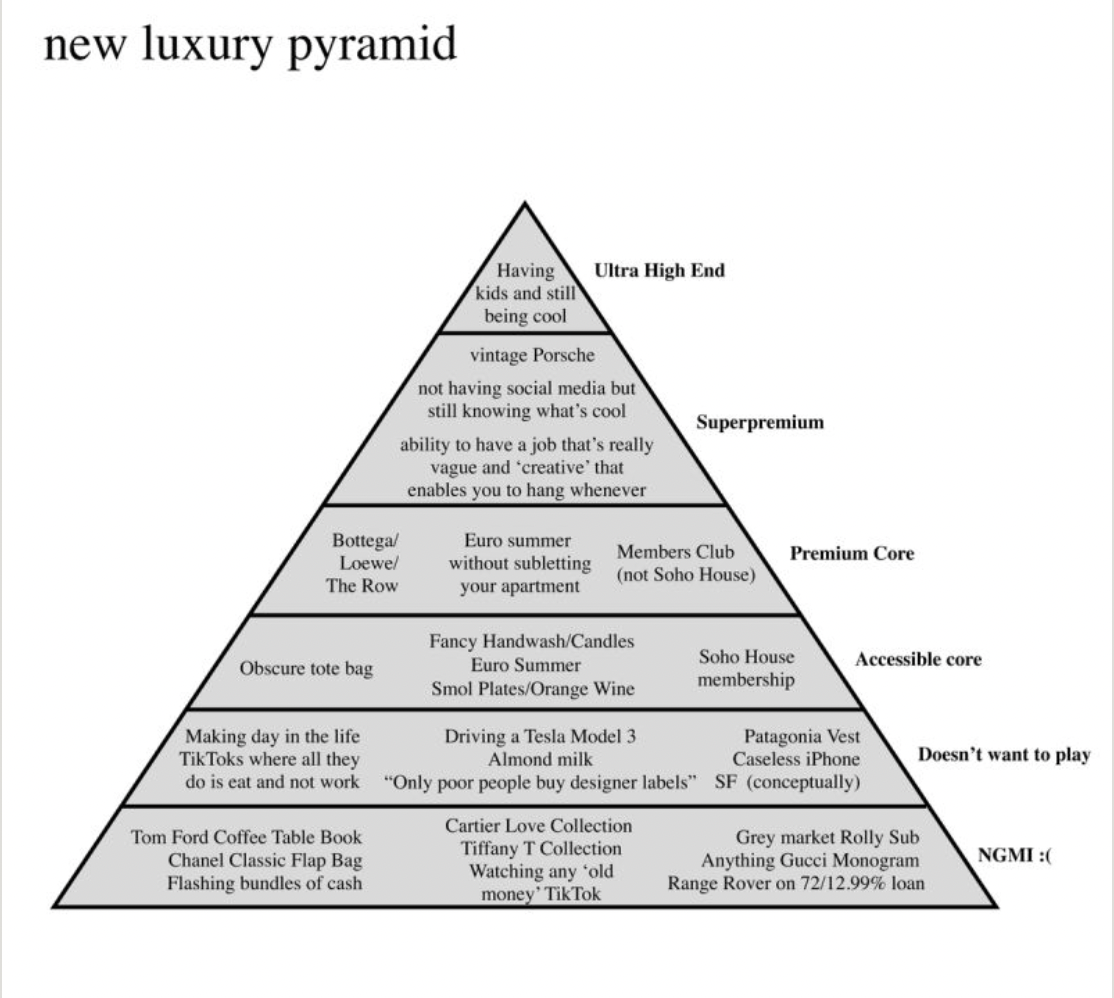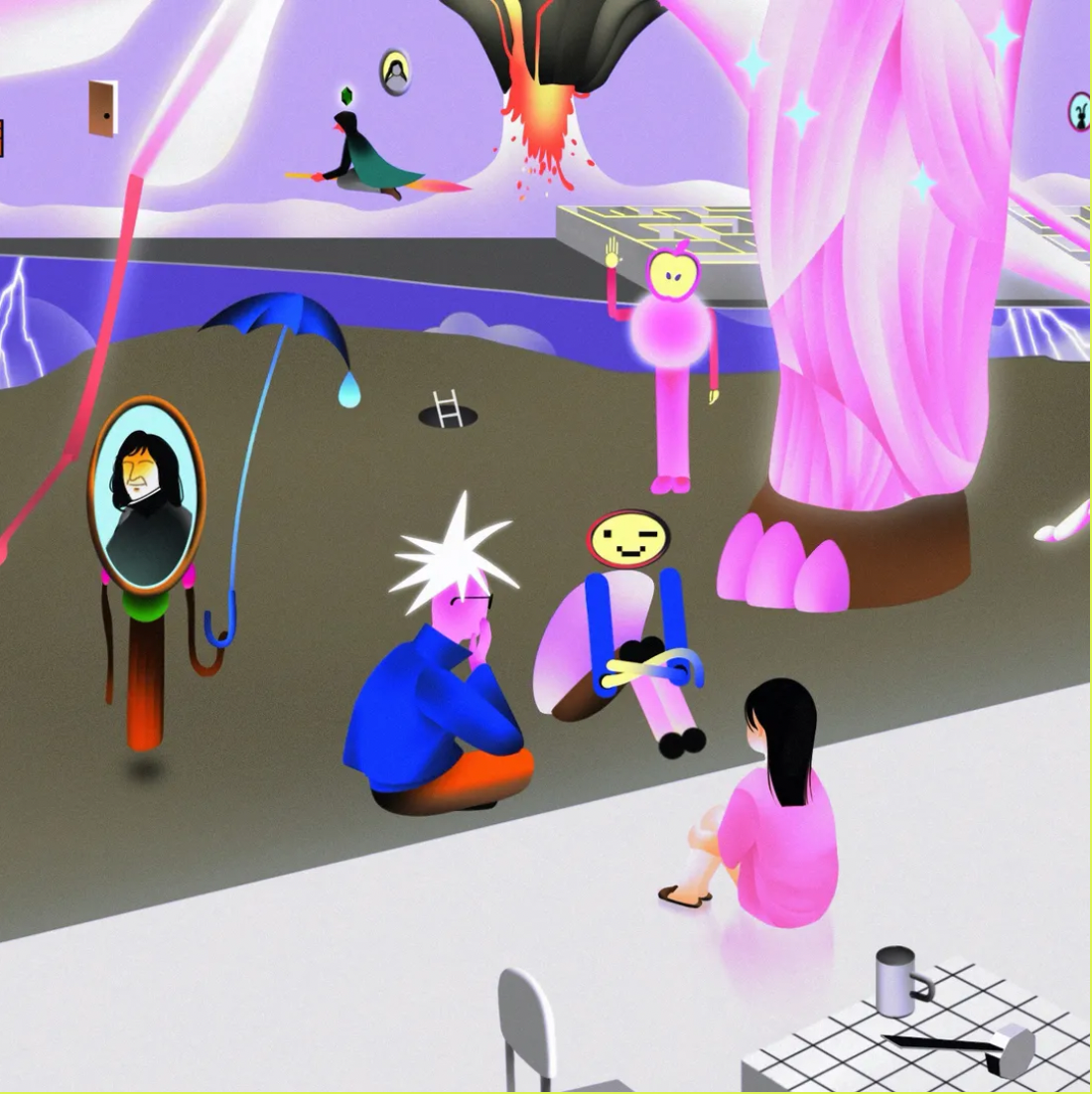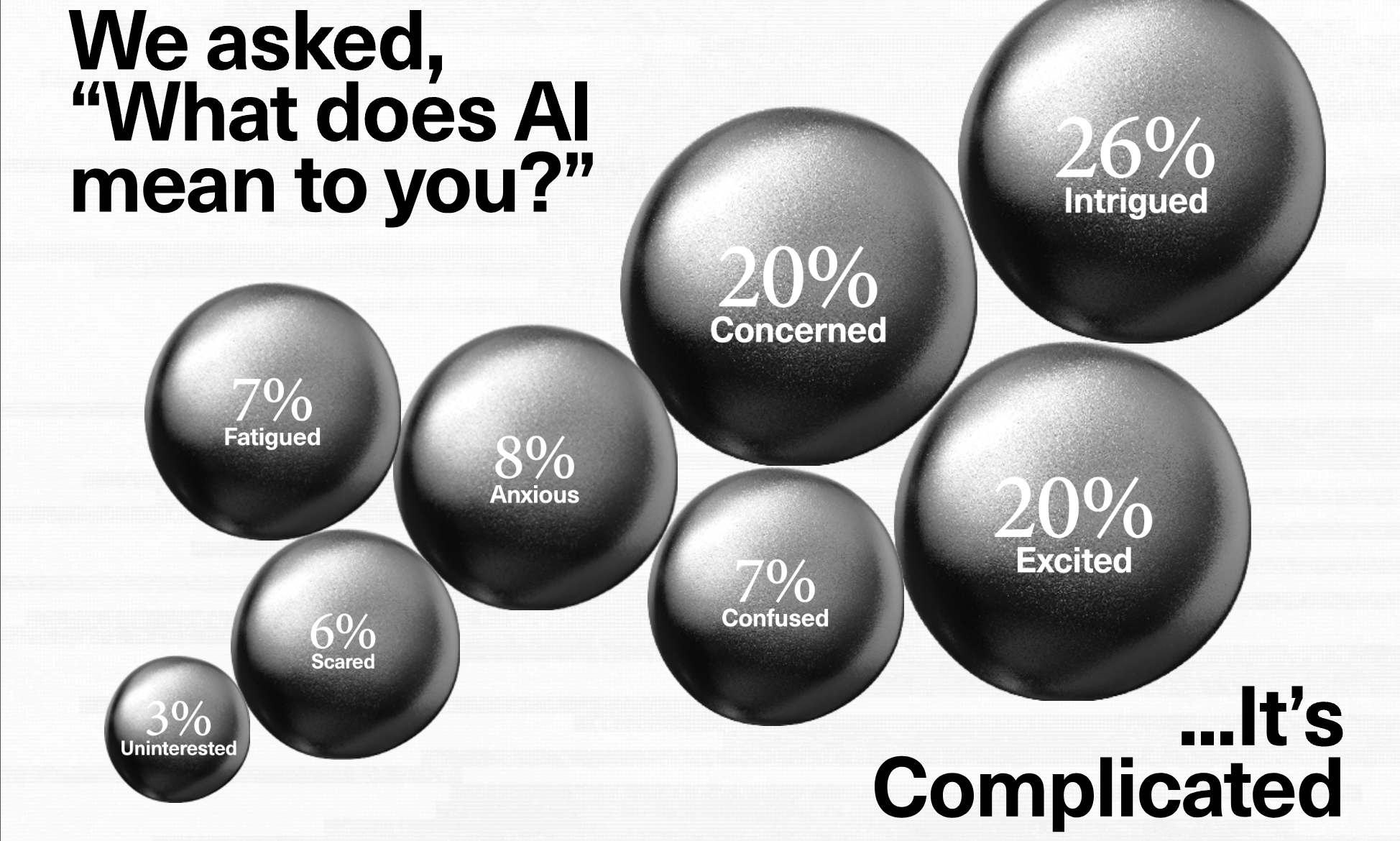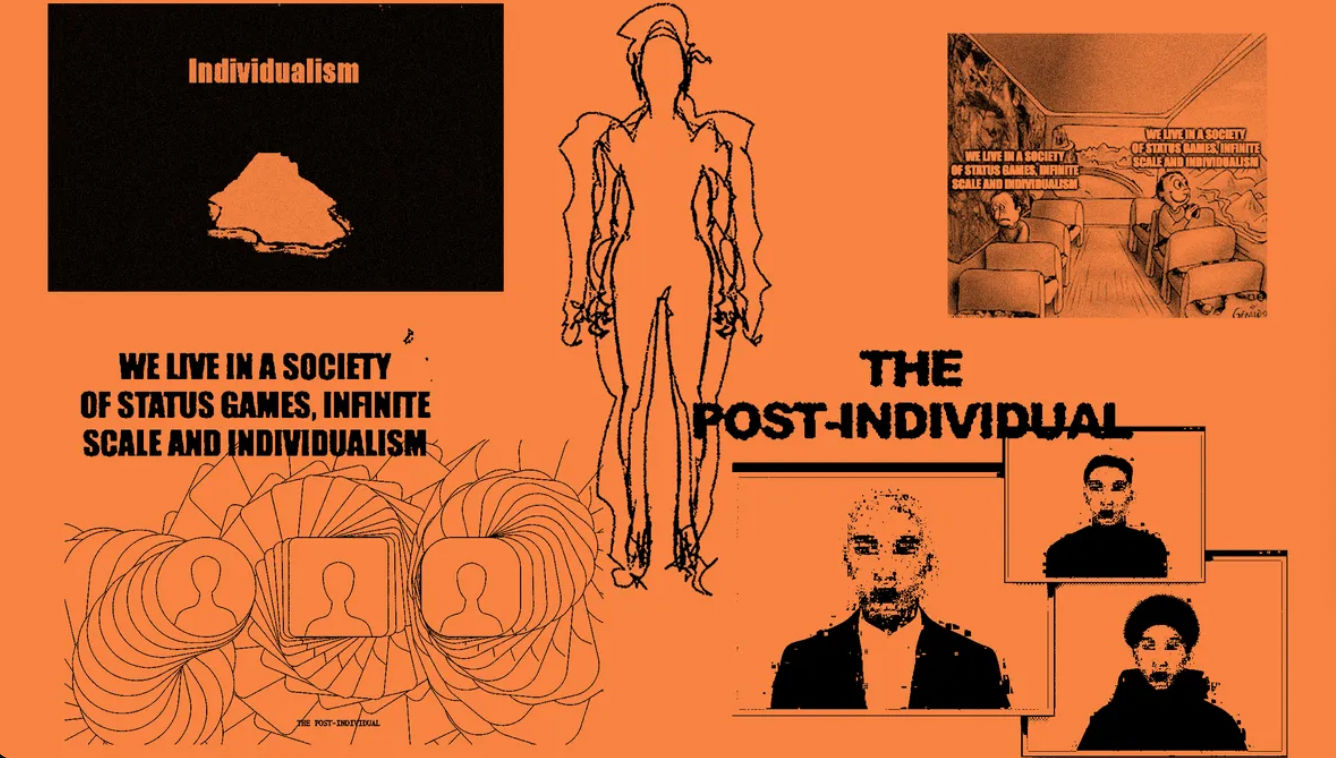2024 Reflections

Instead of adding to the blancmange of predictions that no-one really needs/reads, we thought we'd focus our full moon energy on some of the more pertinent people and ideas that we planted last year — in the hope they'll continue to grow into a better future for us all.
SEEDS
Why Every Company Needs a Futurist-in-Residence by Jennifer Lo
“In today’s volatile and complex world, companies need futurists not just as advisors, but as strategic enablers who build futures literacy across an organization. Investing in the future means investing in the people who can help organisations see a wide array of futures clearly and act on uncertainty with confidence, helping turn that uncertainty into strategic possibility.”
The Case for Brand Mortality in an Era of Legacy-Chasers by James Duru
“Immortality certainly has its benefits. In a world filled with change and disruption, it creates a sense of reliability and stability. When everything else is changing, knowing your car, supermarket, or favourite shampoo will be there, unchanged and unmoved is a small but comforting reassurance. But what if we reconsidered the way we built brands – not as entities built to last forever, but as ones designed for the here and now? What if we thought of them in terms that made them mortal, fallible and finite. What could that mean for our creative practice, their operations and our expectations?”

The New Luxury Pyramid by Edmond Lau
“In the time of the ‘Oat Milk Elite’, status signifiers can be difficult to decode. What once might have been a universal signal of wealth like a Rolex or a Chanel Bag, now can under certain circumstances instead ironically communicate the lack thereof. These days, it seems like we prefer signs that are harder to fake. Taking a photo with a Birkin? Easy. Maintaining your yuppie deluxe lifestyle with two kids and a mortgage? A little harder. Think caseless iPhones, 10.30am fitness classes, not having roommates.”
A Meme Manifesto Project by Clusterduck
“In a moment like this, we can’t but ask ourselves: is there really nothing more urgent to do than studying memes? Is this really what the world needs right now? Indeed, we believe that these trivial, controversial bits of symbolic information we call “memes” can help us rebuild the broken web of reality entangling us all.”

Magic, Online! by Nick Susi
“The debate over ‘is it real or fake’ is somewhat ironic, because so much of what we experience as reality even within our own bodies is actually simulation. This is a call to shed our hubris, recognise our quite normal human vulnerabilities and embrace radical humility and empathy for ourselves and each other. The good news is, we’ve been here before. While the current flavour of AI doomerism is new, this question of reality is not. We no longer think we can communicate with the dead through morse code or telephones, or that the earth is being invaded by aliens when listening to the radio. What looks like a mind blowing card trick the first time could look like simple sleight of hand the 12th.”
The Toxicity Rating by Melanin Gamers
“Making gaming safer for all gamers, the Toxicity Rating was created to inform gamers and parents of what kind of content they can expect to encounter while playing online. And call attention to the fact that the gaming community desperately needs change to be an inclusive safe space for all who play.”
Calling Artists ‘Creators’ Feeds the Big Tech Beast by Declan McGylnn
“There’s been a conscious effort to re-brand music as content by big tech, triggered by the growth of new music-makers during the pandemic. This sinister pivot is intended to devalue music, to both introduce apathy to the next generation of music makers – or ‘creators’ – to undermine existing music remuneration systems and to knock music off its pedestal and reduce it to ‘data’ that’s fair game for training in the age of AI.”
How Creativity Changes As We Age by Amelia Abraham
“Age undoubtedly affects our creativity, our output and our feelings around ambition, even if the web of social, psychological and biological factors shaping our lives look different for everyone. Science, overall, suggests that we become less creative as we grow older, but the real story is not so simple.”
How Much Would You Sell Out For? by Dirt
“Most online conversations about selling out get boring fast. The discourse tends to break down to semantics really easily, because any assessment of whether somebody is a sellout hinges on what it even means to be a sellout. It’s a glorified version of that timeless load-bearing Tweet: ‘Is pop star a feminist? Is Mastercard a queer ally? Is this tv show my friend?’ The only acceptable answers being ‘who cares’ or ‘there is no ethical consumption under capitalism’.”

The Teens Making Friends With AI Chatbots by Jessica Lucas
“Teenagers who have silly conversations with chatbots are not all that different from the ones who once hurled abuse at AOL’s Smarter Child. The teenage girls pursuing relationships with chatbots based on Tom Riddle or Harry Styles or even aggressive Mafia-themed boyfriends probably would have been on Tumblr or writing fan fiction 10 years ago. While some of the culture around Character.AI is concerning, it also mimics the internet activity of previous generations who, for the most part, have turned out just fine.”
The New Rules of Influence by Tumblr
“For a generation craving reality over polish, the traditional influencer model is increasingly seen as just another form of advertising cluttering their feeds — easy to spot and even easier to scroll past. Brands need to rethink their approach, focusing on genuine connections rather than relying on influencers who may no longer hold the sway they once did.”

AI’s Impact On The Future of Culture by Nowness x Art Review
“There is more hype and obfuscation about what the technology can and cannot actually do. This can lead to embarrassing mistakes, and for journalists to feed into the hype machine, by, for example, anthropomorphising AI technologies, and mythologising tech companies.”
FORUMS

Are We Entering A Post-Individualistic Age?
“The internet allows for an acceleration of the congregation of people who have similar interests, and there is also the kind of proliferation of subjectivities real and imagined, which are used in order to sell you more stuff... The history of capitalism is, in many ways, the history of the invention of subjectivities in order to be able to sell you unique products” – Jack Self
Is It Time We Broke Up With Nostalgia?
“We should break up with nostalgia because it’s too narrow minded. Yes, we should be engaging with the great creative objects of the past, but we should just be engaging with them as if it’s 2024, not pretending that it’s 1994, 1984 or whatever else” – Sean Monahan
Is Gatekeeping Good For Culture?
“We’re not talking about gatekeeping any more when it comes to creation and production – with AI, that ship has sailed. We cannot go back. Everyone can create. And with distribution, you can’t tell people to stop using social media to stop promoting their work. But nobody has a right to distribution, and it cannot ever be fully democratised” – Daisy Alioto
| SEED | #8285 |
|---|---|
| DATE | 14.01.25 |
| PLANTED BY | PROTEIN |


